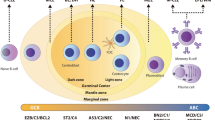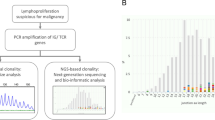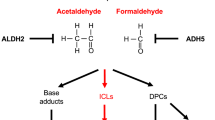Abstract
There are a paucity and contradicted data about the impact of concurrent heredity of polymorphic genes and risk of chronic myeloid leukemia (CML). In the present study, the concurrent effects of three polymorphisms affecting the integrity of DNA consist of ABCB1 C3435T, ABCG2 C421A, and XRCC1 Arg194Trp on development of chronic myeloid leukemia were studied. Furthermore, the role of these polymorphisms in clinical and laboratory outcomes of patients was evaluated. In this case–control study, 70 CML patients and 140 healthy individuals were enrolled in the study. The clinical features of patients such as phase of disease and response to treatment and laboratory data before and after treatment with imatinib mesylate were collected. ABCB1 C3435T, ABCG2 C421A, and XRCC1 Arg194Trp single nucleotide polymorphisms were evaluated by restriction fragment length polymorphism–polymerase chain reaction. The T allele of ABCB1 C3435T, T allele of XRCC1 Arg194Trp, and C allele of ABCG2 C421A polymorphisms were significantly higher in patients than controls. TT genotype of ABCB1 and TT genotype of XRCC1 were associated with higher risk of chronic myeloid leukemia development. CC421 ABCG2/TT3435 ABCB1 and CC421 ABCG2/TT27157 XRCC1 were also correlated with a higher risk of CML. Patients with C allele of ABCB1 had poor cytogenetic response, and correlation of CC421 ABCG2/TT3435 ABCB1 diplotype with accelerated phase of CML was significant. Patients with CC421 ABCG2/TT3435 ABCB1 and CC421 ABCG2/TT27157 XRCC1 diplotypes might be at higher risk to rapid and severe development of CML and have weaker response to treatments with imatinib.

Similar content being viewed by others
References
Geary CG. The story of chronic myeloid leukaemia. Br J Haematol. 2000;110(1):2–11.
Jabbour E, Kantarjian H. Chronic myeloid leukemia: 2012 update on diagnosis, monitoring, and management. Am J Hematol. 2012;87(11):1037–45.
Melo JV, Barnes DJ. Chronic myeloid leukaemia as a model of disease evolution in human cancer. Nature reviews. 2007;7(6):441–53.
Taspinar M, Aydos SE, Comez O, Elhan AH, Karabulut HG, Sunguroglu A. CYP1A1, GST gene polymorphisms and risk of chronic myeloid leukemia. Swiss Med Wkly. 2008;138(1–2):12–7.
Belitsky GA, Yakubovskaya MG. Genetic polymorphism and variability of chemical carcinogenesis. Biochemistry (Mosc). 2008;73(5):543–54.
Lee JS, Ward WO, Liu J, Ren H, Vallanat B, Delker D, et al. Hepatic xenobiotic metabolizing enzyme and transporter gene expression through the life stages of the mouse. PLoS One. 2011;6(9):e24381.
Ueda K, Pastan I, Gottesman MM. Isolation and sequence of the promoter region of the human multidrug-resistance (P-glycoprotein) gene. J Biol Chem. 1987;262(36):17432–6.
Maliepaard M, Scheffer GL, Faneyte IF, van Gastelen MA, Pijnenborg AC, Schinkel AH, et al. Subcellular localization and distribution of the breast cancer resistance protein transporter in normal human tissues. Cancer Res. 2001;61(8):3458–64.
Andersen V, Ostergaard M, Christensen J, Overvad K, Tjonneland A, Vogel U. Polymorphisms in the xenobiotic transporter Multidrug Resistance 1 (MDR1) and interaction with meat intake in relation to risk of colorectal cancer in a Danish prospective case-cohort study. BMC Cancer. 2009;9:407.
Keskitalo JE, Zolk O, Fromm MF, Kurkinen KJ, Neuvonen PJ, Niemi M. ABCG2 polymorphism markedly affects the pharmacokinetics of atorvastatin and rosuvastatin. Clin Pharmacol Ther. 2009;86(2):197–203.
Sissung TM, Baum CE, Kirkland CT, Gao R, Gardner ER, Figg WD. Pharmacogenetics of membrane transporters: an update on current approaches. Mol Biotechnol. 2010;44(2):152–67.
Woodward OM, Kottgen A, Coresh J, Boerwinkle E, Guggino WB, Kottgen M. Identification of a urate transporter, ABCG2, with a common functional polymorphism causing gout. Proc Natl Acad Sci U S A. 2009;106(25):10338–42.
Lindahl T, Wood RD. Quality control by DNA repair. Science. 1999;286(5446):1897–905.
Hung RJ, Hall J, Brennan P, Boffetta P. Genetic polymorphisms in the base excision repair pathway and cancer risk: a HuGE review. Am J Epidemiol. 2005;162(10):925–42.
Ishikawa T, Hirano H, Onishi Y, Sakurai A, Tarui S. Functional evaluation of ABCB1 (P-glycoprotein) polymorphisms: high-speed screening and structure–activity relationship analyses. Drug Metab Pharmacokinet. 2004;19(1):1–14.
Mesallamy HO, Rashed WM, Hamdy NM, Hamdy N. High-dose methotrexate in Egyptian pediatric acute lymphoblastic leukemia: the impact of ABCG2 C421A genetic polymorphism on plasma levels, what is next? J Cancer Res Clin Oncol. 2014;140(8):1359–65.
Xue H, Ni P, Lin B, Xu H, Huang G. X-ray repair cross-complementing group 1 (XRCC1) genetic polymorphisms and gastric cancer risk: a HuGE review and meta-analysis. Am J Epidemiol. 2011;173(4):363–75.
Maroofi F, Amini S, Roshani D, Ghaderi B, Abdi M. Different frequencies and effects of ABCB1 T3435C polymorphism on clinical and laboratory features of B cell chronic lymphocytic leukemia in Kurdish patients. Tumour Biol. 2015;36(4):2863–8.
Jamroziak K, Mlynarski W, Balcerczak E, Mistygacz M, Trelinska J, Mirowski M, et al. Functional C3435T polymorphism of MDR1 gene: an impact on genetic susceptibility and clinical outcome of childhood acute lymphoblastic leukemia. Eur J Haematol. 2004;72(5):314–21.
Elghannam DM, Ibrahim L, Ebrahim MA, Azmy E, Hakem H. Association of MDR1 gene polymorphism (G2677T) with imatinib response in Egyptian chronic myeloid leukemia patients. Hematology. 2014;19(3):123–8.
Zamber CP, Lamba JK, Yasuda K, Farnum J, Thummel K, Schuetz JD, et al. Natural allelic variants of breast cancer resistance protein (BCRP) and their relationship to BCRP expression in human intestine. Pharmacogenetics. 2003;13(1):19–28.
Benderra Z, Faussat AM, Sayada L, Perrot JY, Chaoui D, Marie JP, et al. Breast cancer resistance protein and P-glycoprotein in 149 adult acute myeloid leukemias. Clin Cancer Res. 2004;10(23):7896–902.
Wilson CS, Davidson GS, Martin SB, Andries E, Potter J, Harvey R, et al. Gene expression profiling of adult acute myeloid leukemia identifies novel biologic clusters for risk classification and outcome prediction. Blood. 2006;108(2):685–96.
Robey RW, Polgar O, Deeken J, To KW, Bates SE. ABCG2: determining its relevance in clinical drug resistance. Cancer metastasis reviews. 2007;26(1):39–57.
Batar B, Guven M, Baris S, Celkan T, Yildiz I. DNA repair gene XPD and XRCC1 polymorphisms and the risk of childhood acute lymphoblastic leukemia. Leukemia Research. 2009;33(6):759–63.
Banescu C, Duicu C, Trifa AP, Dobreanu M. XRCC1 Arg194Trp and Arg399Gln polymorphisms are significantly associated with shorter survival in acute myeloid leukemia. Leukemia & lymphoma. 2014;55(2):365–70.
D'Andrea AD. Targeting DNA repair pathways in AML. Best Practice & Research. 2010;23(4):469–73.
Kuptsova N, Kopecky KJ, Godwin J, Anderson J, Hoque A, Willman CL, et al. Polymorphisms in DNA repair genes and therapeutic outcomes of AML patients from SWOG clinical trials. Blood. 2007;109(9):3936–44.
Seedhouse C, Russell N. Advances in the understanding of susceptibility to treatment-related acute myeloid leukaemia. Br J Haematol. 2007;137(6):513–29.
Meza-Espinoza JP, Peralta-Leal V, Gutierrez-Angulo M, Macias-Gomez N, Ayala-Madrigal ML, Barros-Nunez P, et al. XRCC1 polymorphisms and haplotypes in Mexican patients with acute lymphoblastic leukemia. Genet Mol Res. 2009;8(4):1451–8.
Duman N, Aktan M, Ozturk S, Palanduz S, Cakiris A, Ustek D, et al. Investigation of Arg399Gln and Arg194Trp polymorphisms of the XRCC1 (x-ray cross-complementing group 1) gene and its correlation to sister chromatid exchange frequency in patients with chronic lymphocytic leukemia. Genetic Testing and Molecular Biomarkers. 2012;16(4):287–91.
Liu J, Song B, Wang Z, Song X, Shi Y, Zheng J, et al. DNA repair gene XRCC1 polymorphisms and non-Hodgkin lymphoma risk in a Chinese population. Cancer Genetics and Cytogenetics. 2009;191(2):67–72.
Campo E, Swerdlow SH, Harris NL, Pileri S, Stein H, Jaffe ES. The 2008 WHO classification of lymphoid neoplasms and beyond: evolving concepts and practical applications. Blood. 2011;117(19):5019–32.
Faderl S, Talpaz M, Estrov Z, O'Brien S, Kurzrock R, Kantarjian HM. The biology of chronic myeloid leukemia. N Engl J Med. 1999;341(3):164–72.
Salanti G, Amountza G, Ntzani EE, Ioannidis JP. Hardy–Weinberg equilibrium in genetic association studies: an empirical evaluation of reporting, deviations, and power. Eur J Hum Genet. 2005;13(7):840–8.
Salanti G, Sanderson S, Higgins JP. Obstacles and opportunities in meta-analysis of genetic association studies. Genet Med. 2005;7(1):13–20.
Ioannidis JP. Genetic associations: false or true? Trends in molecular medicine. 2003;9(4):135–8.
Ioannidis JP, Ntzani EE, Trikalinos TA. ‘Racial’ differences in genetic effects for complex diseases. Nature genetics. 2004;36(12):1312–8.
Maffioli M, Camos M, Gaya A, Hernandez-Boluda JC, Alvarez-Larran A, Domingo A, et al. Correlation between genetic polymorphisms of the hOCT1 and MDR1 genes and the response to imatinib in patients newly diagnosed with chronic-phase chronic myeloid leukemia. Leukemia research. 2011;35(8):1014–9.
Brambila-Tapia AJ. MDR1 (ABCB1) polymorphisms: functional effects and clinical implications. Revista de investigacion clinica; organo del Hospital de Enfermedades de la Nutricion. 2013;65(5):445–54.
Illmer T, Schuler US, Thiede C, Schwarz UI, Kim RB, Gotthard S, et al. MDR1 gene polymorphisms affect therapy outcome in acute myeloid leukemia patients. Cancer Res. 2002;62(17):4955–62.
Li YH, Wang YH, Li Y, Yang L. MDR1 gene polymorphisms and clinical relevance. Yi chuan xue bao = Acta genetica Sinica. 2006;33(2):93–104.
Sailaja K, Surekha D, Nageswara Rao D, Raghunadha Rao D, Vishnupriya S. ABCB1 (MDR1, P-glycoprotein) C3435T gene polymorphism and its possible association with chronic myeloid leukemia prognosis. Curr Trends Biotechnol Pharm. 2008;2:514–22.
Ali MA, Elsalakawy WA. ABCB1 haplotypes but not individual SNPs predict for optimal response/failure in Egyptian patients with chronic-phase chronic myeloid leukemia receiving imatinib mesylate. Medical oncology (Northwood, London, England). 2014;31(11):279.
Au A, Aziz Baba A, Goh AS, Wahid Fadilah SA, Teh A, Rosline H, et al. Association of genotypes and haplotypes of multi-drug transporter genes ABCB1 and ABCG2 with clinical response to imatinib mesylate in chronic myeloid leukemia patients. Biomedicine & pharmacotherapy = Biomedecine & pharmacotherapie. 2014;68(3):343–9.
Annamaneni S, Gorre M, Kagita S, Addepalli K, Digumarti RR, Satti V, et al. Association of XRCC1 gene polymorphisms with chronic myeloid leukemia in the population of Andhra Pradesh, India. Hematology. 2013;18(3):163–8.
Tang L, Xiong T, Jia Q, He Q, Tong X, Peng Y, et al. Study on the association between the Arg194Trp polymorphism in the XRCC1 gene and the risk of hematological malignancies. Tumour Biol. 2014;35(4):3009–16.
Du L, Liu Y, Xue P, Song C, Shen J, He Q, et al. The Arg399Gln polymorphism in the XRCC1 gene is associated with increased risk of hematological malignancies. Tumour Biol. 2015 Jan 27.
Zhang H, Liu H, Jiang G. Genetic polymorphisms of XRCC1 and leukemia risk: a meta-analysis of 19 case–control studies. PLoS One. 2013;8(11):e80687.
Chen P, Zhao L, Zou P, Xu H, Lu A, Zhao P. The contribution of the ABCG2 C421A polymorphism to cancer susceptibility: a meta-analysis of the current literature. BMC Cancer. 2012;12:383.
Hu LL, Wang XX, Chen X, Chang J, Li C, Zhang Y, et al. BCRP gene polymorphisms are associated with susceptibility and survival of diffuse large B-cell lymphoma. Carcinogenesis. 2007;28(8):1740–4.
Korenaga Y, Naito K, Okayama N, Hirata H, Suehiro Y, Hamanaka Y, et al. Association of the BCRP C421A polymorphism with nonpapillary renal cell carcinoma. International journal of cancer. 2005;117(3):431–4.
Campa D, Butterbach K, Slager SL, Skibola CF, de Sanjose S, Benavente Y, et al. A comprehensive study of polymorphisms in the ABCB1, ABCC2, ABCG2, NR1I2 genes and lymphoma risk. International journal of cancer. 2011;131(4):803–12.
Muller P, Asher N, Heled M, Cohen SB, Risch A, Rund D. Polymorphisms in transporter and phase II metabolism genes as potential modifiers of the predisposition to and treatment outcome of de novo acute myeloid leukemia in Israeli ethnic groups. Leukemia research. 2008;32(6):919–29.
Acknowledgments
The authors wish to thank all patients and health stuffs who participated in this study. This work has no financial support.
Conflicts of interest
None
Author information
Authors and Affiliations
Corresponding authors
Rights and permissions
About this article
Cite this article
Salimizand, H., Amini, S., Abdi, M. et al. Concurrent effects of ABCB1 C3435T, ABCG2 C421A, and XRCC1 Arg194Trp genetic polymorphisms with risk of cancer, clinical output, and response to treatment with imatinib mesylate in patients with chronic myeloid leukemia. Tumor Biol. 37, 791–798 (2016). https://doi.org/10.1007/s13277-015-3874-4
Received:
Accepted:
Published:
Issue Date:
DOI: https://doi.org/10.1007/s13277-015-3874-4




